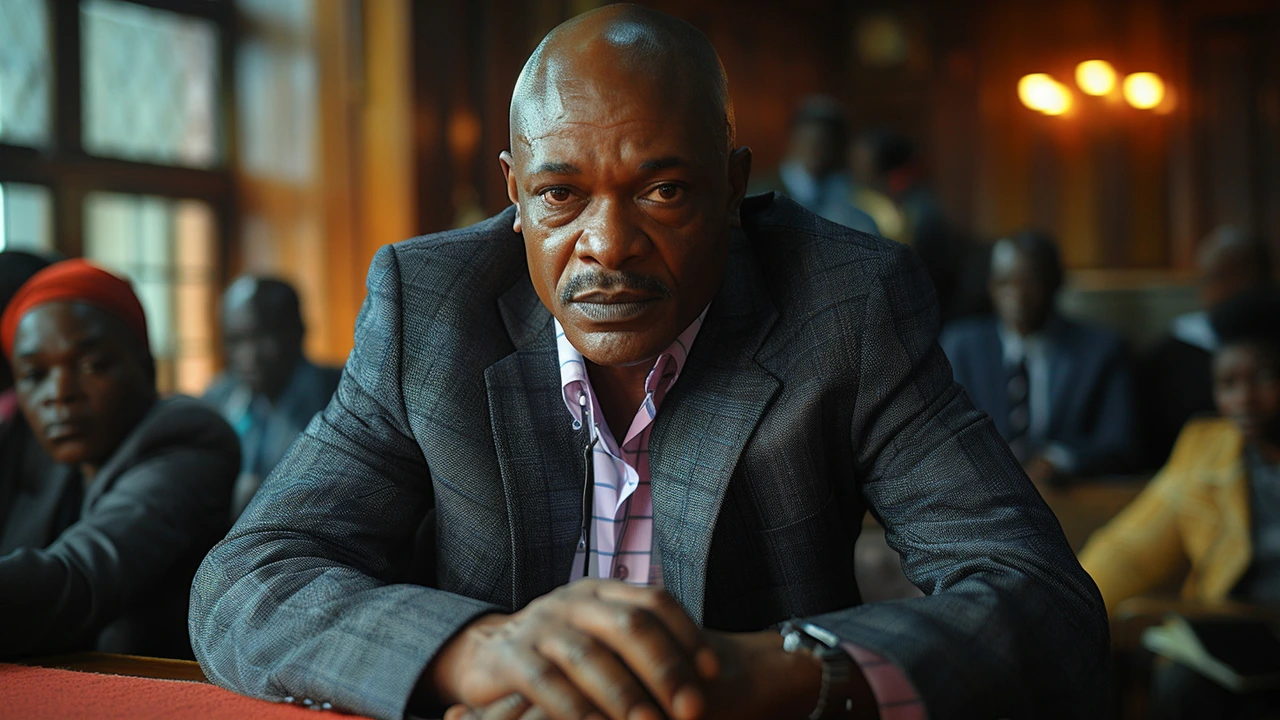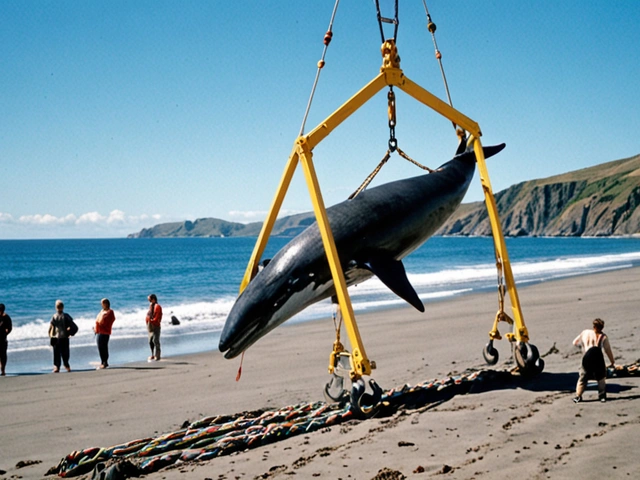Ex-CBN Governor Godwin Emefiele Granted Bail of N300 Million
In a significant turn of events, the former Governor of the Central Bank of Nigeria (CBN), Mr. Godwin Emefiele, has been granted a bail of N300 million by a Federal Capital Territory High Court in Abuja. This decision followed his arraignment on charges linked to the unlawful redesign of the naira, as well as other financial misdeeds. The court session, which drew considerable public and media attention, aimed to address the allegations levied against the former central bank chief.
Mr. Emefiele faces serious accusations, including the approval of the printing of N684.5 million worth of naira notes at the exorbitant rate of N18.96 billion. In addition, he is accused of unlawfully withdrawing N124.8 billion from the Consolidated Revenue Fund of the Federation. These actions, according to prosecutors, were carried out in defiance of legal directives, potentially causing significant harm to the public.
Denial of Accusations
Despite the gravity of these accusations, Mr. Emefiele has pleaded not guilty to all four count charges against him. His defense team was quick to secure bail, which came with stringent conditions. The court, presided over by Justice Hamza Muazu, imposed bail terms remarkably similar to those previously set. Emefiele's release conditions stipulated that his sureties must be responsible citizens who own property within the Federal Capital Territory (FCT) valued at N300 million.
The court indeed emphasized the importance of the sureties' responsibility and credibility. As such, the property documents owned by the sureties need to be verified rigorously and deposited with the court's registry, pending the determination of the matter. This condition aims to ensure that the bail is sufficiently secured and that Mr. Emefiele remains within the reach of the judicial system throughout the duration of his trial.
Travel Restrictions and Trial Postponement
Moreover, as part of the bail conditions, Mr. Emefiele is prohibited from travelling outside Nigeria without explicit permission from the court. This restriction aims to prevent any possibility of the accused absconding before the trial concludes. The combination of these stringent bail terms underscores the seriousness of the charges levied against him and the high stakes involved in the trial.
The court has adjourned the matter till May 28 for the commencement of the trial. It's anticipated that the trial proceedings will be a focal point of interest not just for the financial sector but also for the public at large, given the high profile of the accused and the potential implications of the case. Many are keen to see how the judiciary navigates the complex web of financial and legal issues presented by this case.
Implications of the Naira Note Redesign Controversy
The controversy surrounding the naira note redesign has far-reaching consequences for Nigeria's economy and the CBN's credibility. Mr. Emefiele's tenure as the Governor of the Central Bank has been marked by his proactive stance on several economic policies, including the controversial naira redesign. The initiative, intended to combat counterfeiting and inflation, has faced considerable criticism for its implementation process and the economic turmoil it purportedly caused.
The accusations of financial impropriety and unlawful withdrawal of funds compound the controversy. If found guilty, the ramifications could be severe, not just for Mr. Emefiele himself, but also for the broader economic governance in Nigeria. Many analysts and experts are keeping a close watch on the proceedings, aware of the potential for this case to become a landmark in the country’s financial regulatory history.
The Role of the Judiciary
This case places a significant burden on the Nigerian judiciary to ensure a fair and impartial trial. The legal system will be observed closely for consistency, transparency, and stringency in applying the law. This high-profile case is not just about the alleged crimes of one individual; it represents an opportunity for the Nigerian judiciary to assert its independence and commitment to upholding justice.
Public reaction to the bail decision has been mixed. Some Nigerians are concerned about the leniency of the bail conditions given the severity of the allegations. Others are advocating for a thorough and fair trial, emphasizing the importance of the legal principle that a person is innocent until proven guilty. The assurance of a fair trial is crucial for maintaining public trust in the legal and financial systems of Nigeria.
A Look Ahead to May 28
As May 28 approaches, anticipation builds over the commencement of the trial. Stakeholders from various sectors, including the financial community, political commentators, and the general public, are all eager to see how the case unfolds. The trial has the potential to set precedents, both legally and in terms of regulatory practice within the financial sector.
For Mr. Emefiele, the trial represents an opportunity to clear his name and defend his legacy. For the Nigerian public, it offers a chance to seek accountability from those in positions of power. The outcome of this case will likely resonate beyond the courtroom, influencing the discourse on economic policy and governance in Nigeria for years to come.
In summary, the granting of bail to Mr. Godwin Emefiele is just the beginning of what promises to be a landmark trial. The complex allegations, the high-profile nature of the accused, and the significant public interest combine to make this a case of national importance. As the trial progresses, it will be crucial for all parties involved to adhere strictly to principles of fairness and justice, ensuring that the truth is revealed and proper accountability is established.







George Georgakopoulos
May 15, 2024 AT 18:09Look, the whole bail thing screams a high‑level collusion between the banking elite and the political machinery; the N300 million surety is just a signal that the same shadow networks that engineered the note redesign are now pulling the strings of the judiciary to keep Emefiele out of prison while they continue siphoning cash behind the scenes. The court’s “stringent conditions” are a theatrical performance designed to placate public outrage, not a real barrier, because anyone with the right connections can post a property title in the FCT and walk free. This isn’t about due process; it’s about preserving the power structure that benefits from a weakened naira, and the bail amount mirrors the amount of money that was allegedly misappropriated, a cruel irony that only the insiders seem to notice.
Abirami Nagarajan
May 15, 2024 AT 20:56It’s good to see that the court is taking the accusations seriously and imposing conditions to make sure the bail is secured.
shefali pace
May 15, 2024 AT 23:42While the news of the bail may feel unsettling, it also opens a window for transparency and accountability; the trial could finally shine a light on the decisions that shaped the naira redesign, and perhaps this scrutiny will inspire more resilient economic policies in the future. If the judicial process holds firm, it could restore some public confidence and signal that even the most powerful officials are not above the law. Let’s hope the upcoming proceedings bring clarity and set a precedent for stronger governance.
sachin p
May 16, 2024 AT 02:29From a broader perspective, the redesign of the naira not only impacted the domestic market but also sent ripples through diaspora communities who rely on remittances; many Nigerians abroad have complained about the sudden cash shortages and the confusion over new denominations. It would be interesting to examine how such monetary policies affect cultural practices tied to cash handling, like traditional gift‑giving ceremonies, and whether the alleged mismanagement has deeper socio‑cultural implications beyond the immediate economic fallout.
sarthak malik
May 16, 2024 AT 05:16Here’s a quick rundown of what the bail conditions actually mean: the N300 million surety has to be backed by property in the FCT, which the court will verify before releasing it; Emefiele can’t leave the country without permission, so any travel plans are effectively on hold; and the bail amount roughly matches the alleged misappropriated funds, which is a common practice to ensure the accused has a stake in staying put. In short, the court is trying to balance the presumption of innocence with a financial safeguard that discourages flight risk.
Nasrin Saning
May 16, 2024 AT 08:02We all know how stressful this whole saga is for everyday Nigerians the courts are trying to keep things fair and transparent even if the process feels slow the community needs to stay patient and keep supporting each other during these tough times
gaganpreet singh
May 16, 2024 AT 10:49It is a moral outrage that a former head of the nation’s central bank can allegedly manipulate the very lifeblood of the economy for personal enrichment, and this case should serve as a stark reminder that no individual, regardless of title, is exempt from ethical scrutiny. The alleged diversion of billions from the Consolidated Revenue Fund strikes at the core of public trust, eroding confidence in institutions that citizens rely upon for stability and growth. When a government official operates under the guise of “reform” while secretly orchestrating financial malfeasance, it undermines the legitimacy of any policy initiative, especially one as disruptive as the naira redesign. Such actions, if proven true, constitute a betrayal of the social contract between the state and its people, a contract that demands transparency, accountability, and a steadfast commitment to the common good. The juxtaposition of a hefty bail amount against the alleged misappropriated funds reads like a cynical satire, implying that justice is only a commodity that can be bought or waived by the affluent. Moreover, the judiciary’s decision to allow travel restrictions underscores the seriousness of the charges, yet it also raises questions about the consistency of legal standards applied across different socio‑economic strata. In a nation where corruption has often been dismissed as an unfortunate norm, this high‑profile case offers a rare opportunity to challenge entrenched cynicism and to demonstrate that the rule of law can prevail. The public’s reaction, ranging from anger to cautious optimism, reflects a deep yearning for systemic change, a yearning that cannot be ignored by policymakers or legal authorities. It is incumbent upon the media to report these developments responsibly, avoiding sensationalism while providing the necessary context that informs citizens about the ramifications of fiscal misconduct. As the trial approaches, legal scholars should meticulously examine the evidentiary standards, ensuring that due process is not only a formal requirement but a lived reality for all parties involved. The potential outcomes of this trial could set precedents that either reinforce a culture of impunity or herald a new era of accountability in public service. Ultimately, the integrity of the financial system hinges upon the moral character of its stewards, and any deviation from ethical conduct must be met with decisive corrective measures. Society must collectively reject the notion that power grants immunity, and instead champion a narrative where integrity is the cornerstone of leadership. Only then can Nigeria hope to rebuild confidence in its monetary policies and steer toward sustainable economic development.
Urmil Pathak
May 16, 2024 AT 13:36So the diaspora angle really adds another layer to the discussion.
Neha Godambe
May 16, 2024 AT 16:22It is absolutely unacceptable that such alleged financial improprieties have been allowed to fester unchecked; the judiciary must act with uncompromising rigor, and the public deserves swift, decisive action to hold the former governor accountable for any wrongdoing.
rupesh kantaria
May 16, 2024 AT 19:09In reverence to the principles of judicial propriety, one must contemplate the implications of this matter upon the sovreign's fiscal integrity; nevertheless, the presence of potential procedural irregularities may hinder the pursuit of an equitable resolution-hence, diligent scrutiny is paramount.
Nathan Tuon
May 16, 2024 AT 21:56Keeping a calm perspective during this trial will help maintain focus on the facts; a measured approach can ensure that any conclusions drawn are based on evidence rather than emotion.
shivam Agarwal
May 17, 2024 AT 00:42Thank you for the clear summary; it really helps demystify the legal jargon and gives a practical sense of what the bail conditions entail for anyone trying to follow the case.